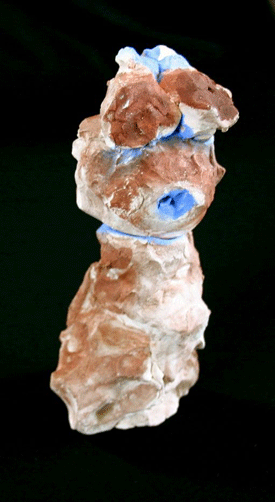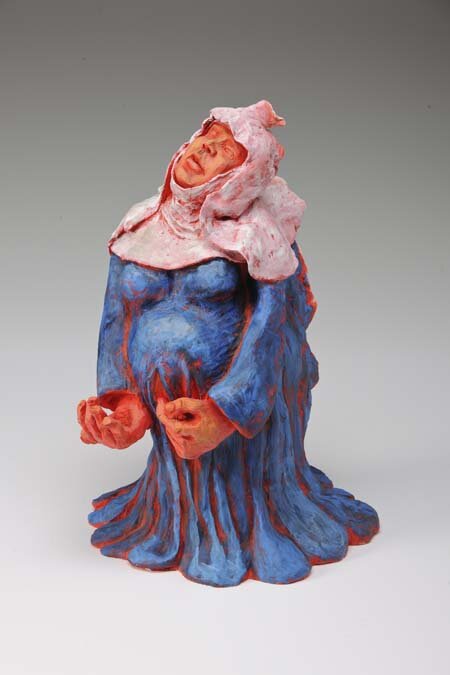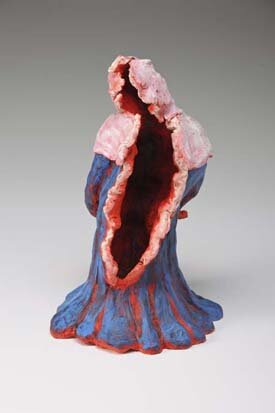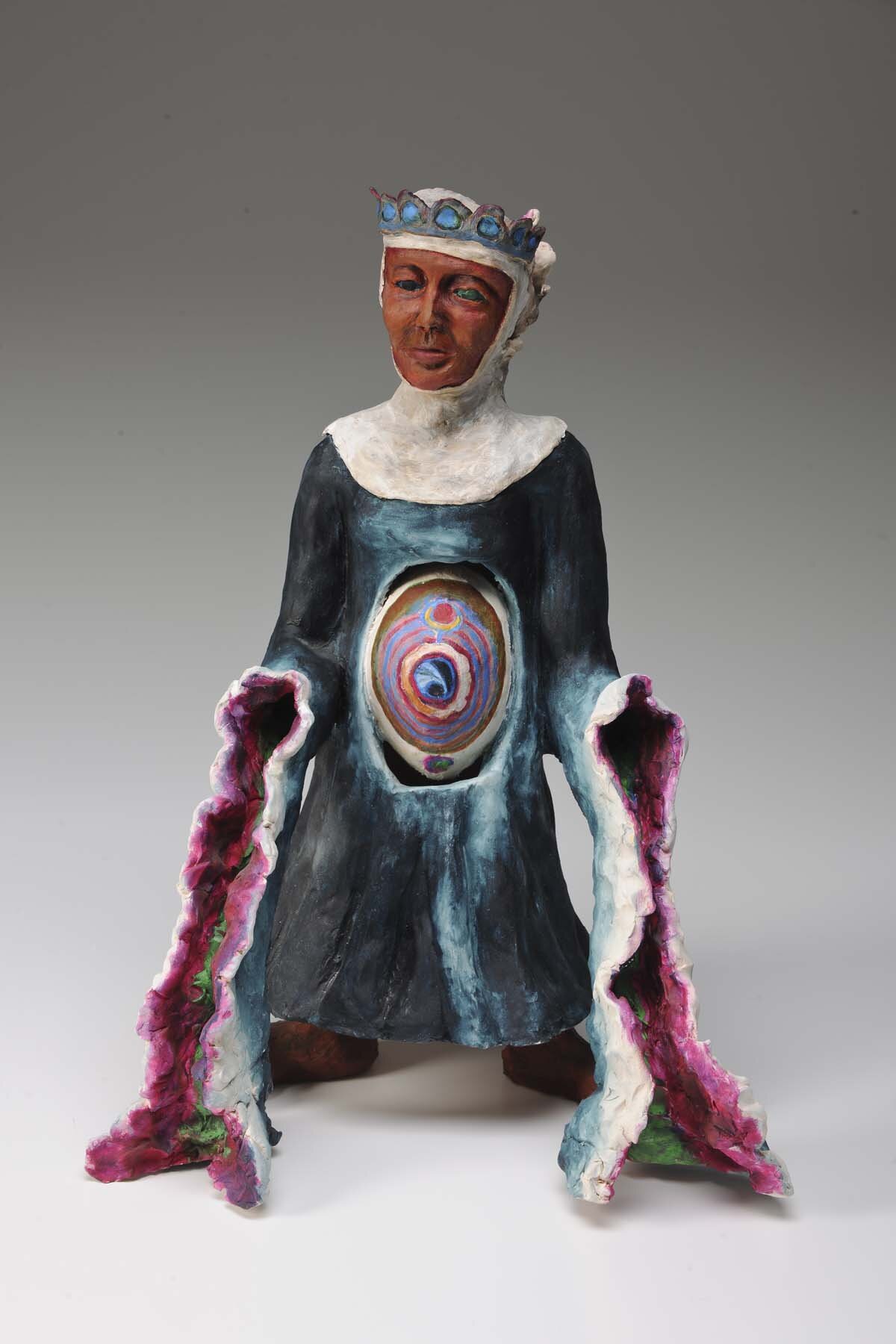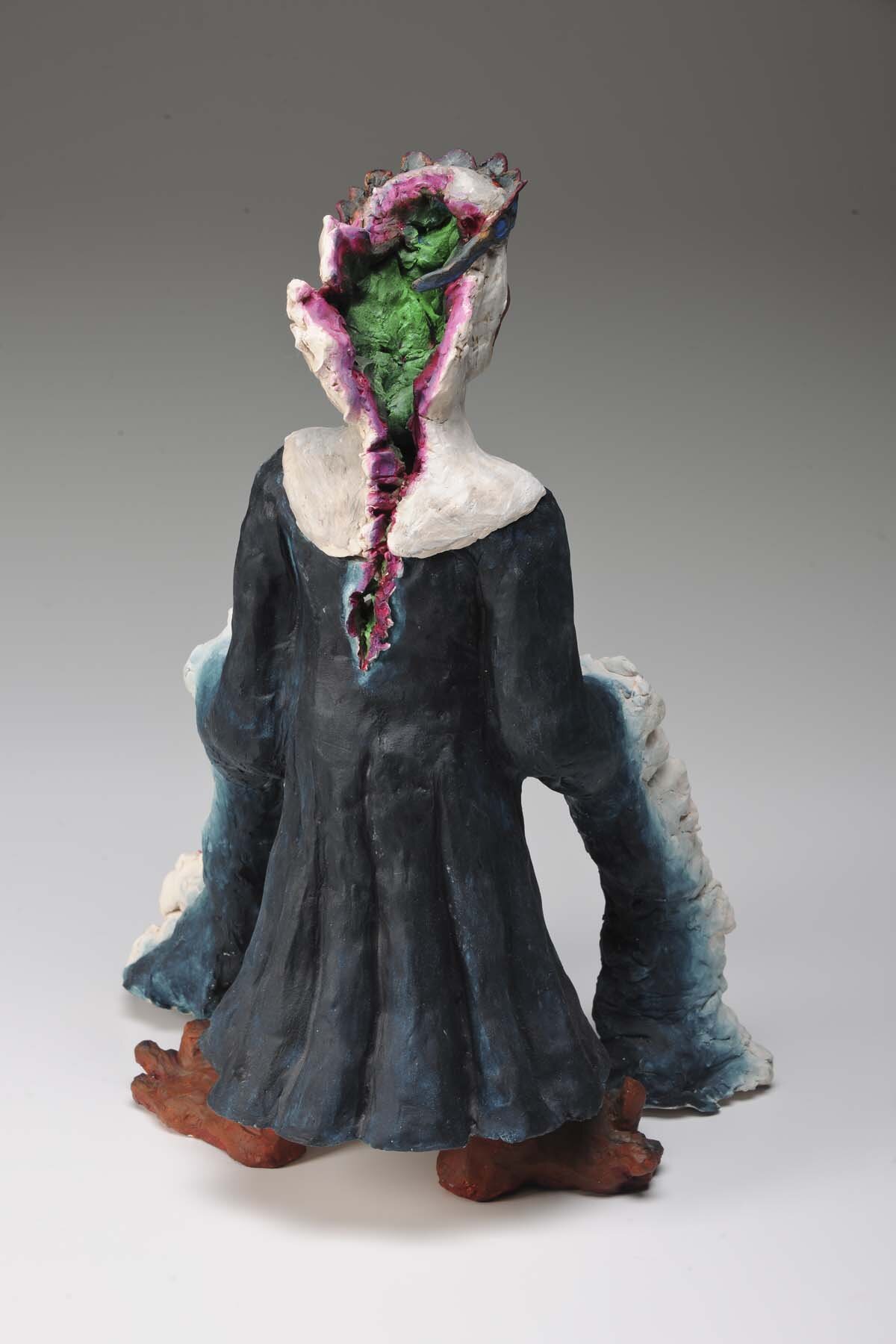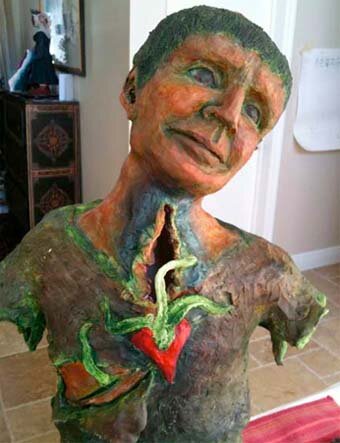
Alleluia-Verse for the Virgin
Alleluia! lightburst from your untouched
womb like a flower
on the farther side
of death. The world-tree
is blossoming. Two
realms become one.
-Hildegard of Bingen(Trans. Barbara Newman from Women in Praise of the Sacred)
The Egg Cracks
When I make art, I am seeking the Void or the womb of God, a place Hildegard describes so beautifully as the nexus where "two realms become one". The last several years have brought me a much needed emptying process creating space in my life for this sacred nexus to flourish. I have been laid open and unclogged by making art. Making art cleared me and making art connects me with the Void. It is a form of deep, committed prayer.This is the story of my opening told through my sculptures. I started as an artist sculpting in clay at the age of four, but left the medium for 20 years. Upon my return a few years back, I made very controlled sculptures like The Egg Cracks (seen to the left.
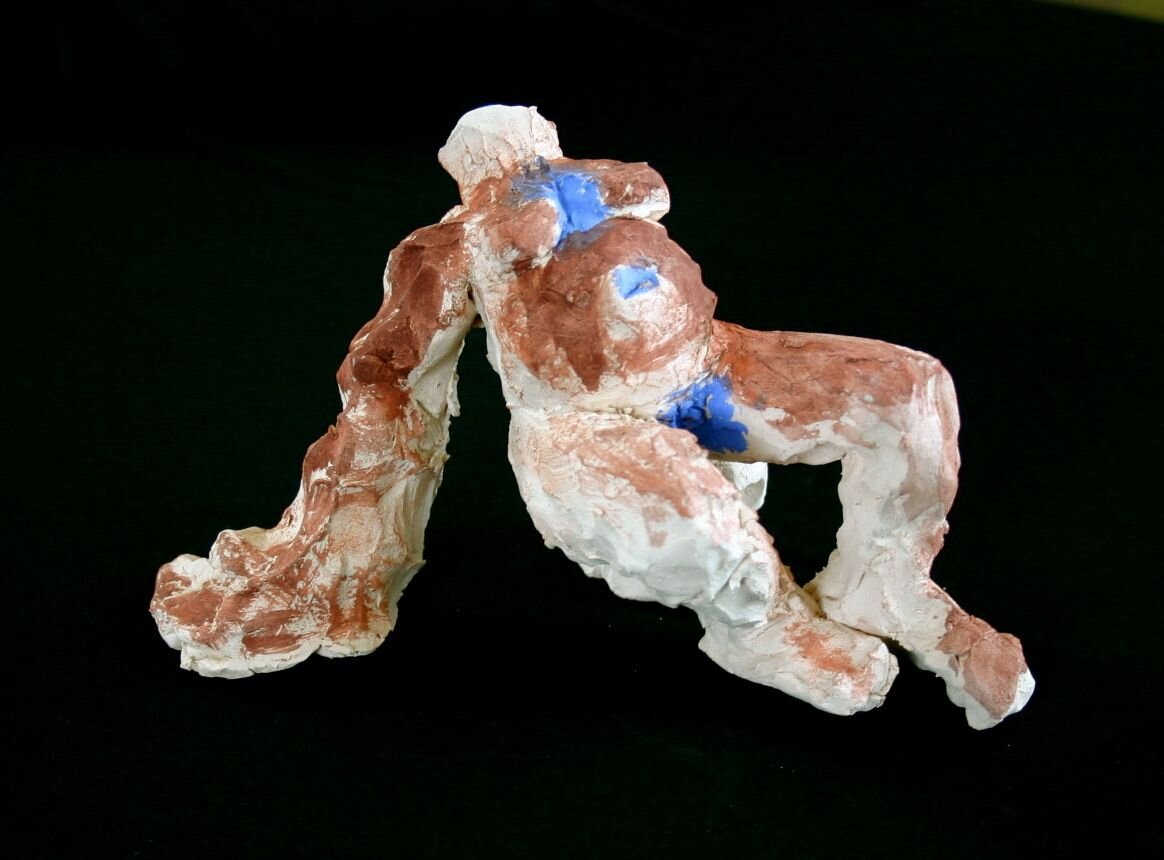
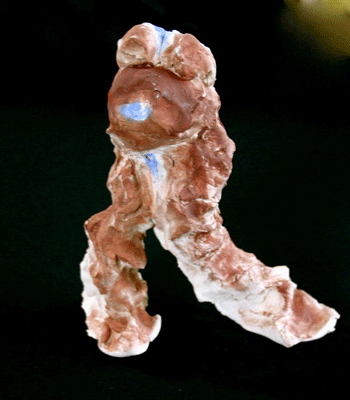
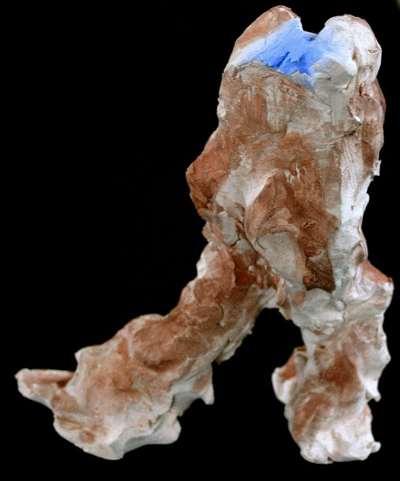
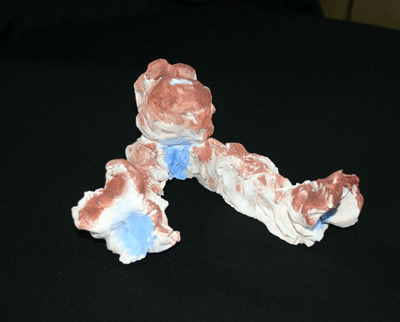
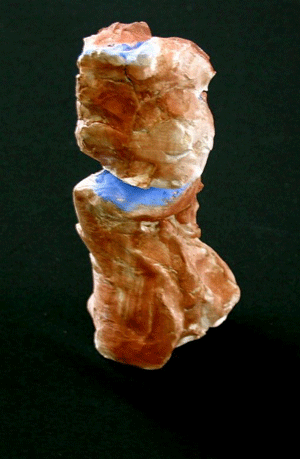
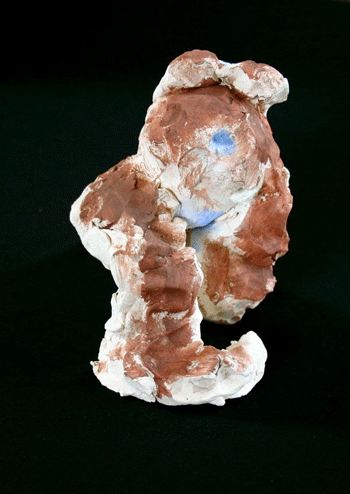
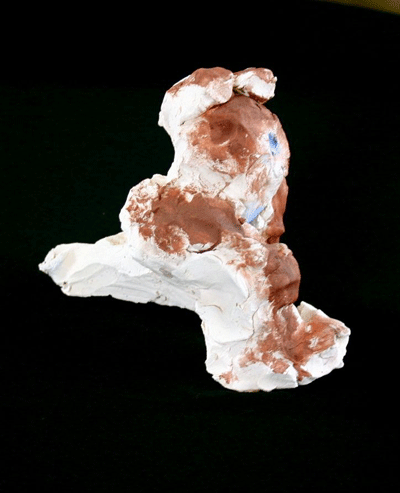
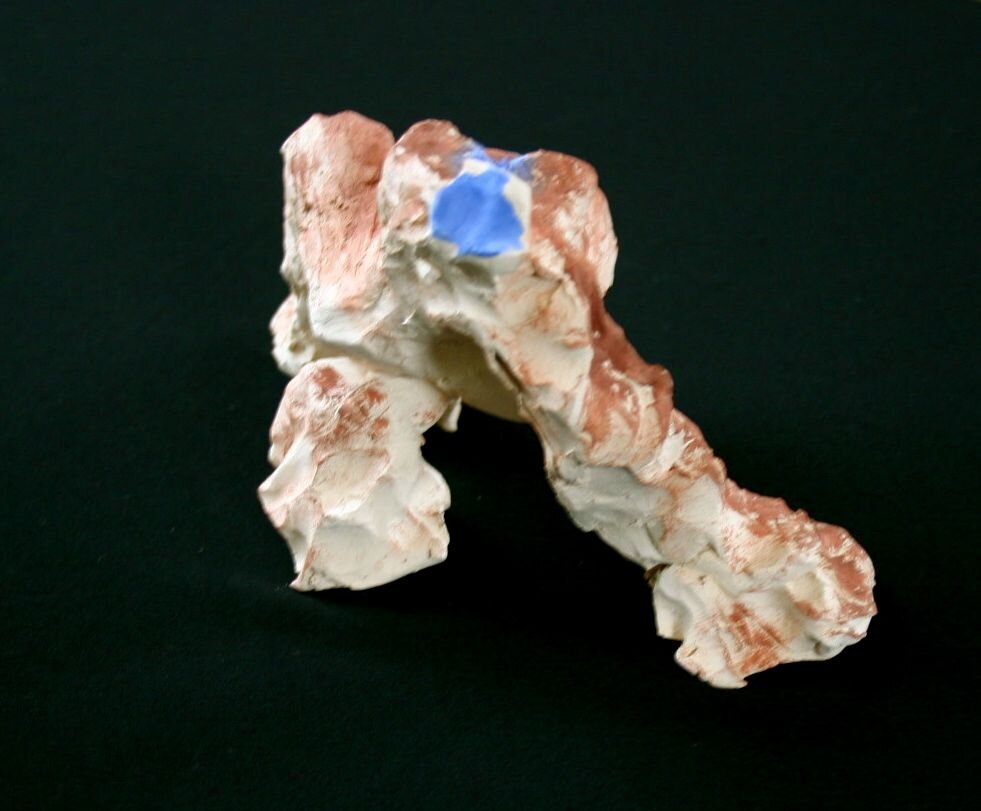
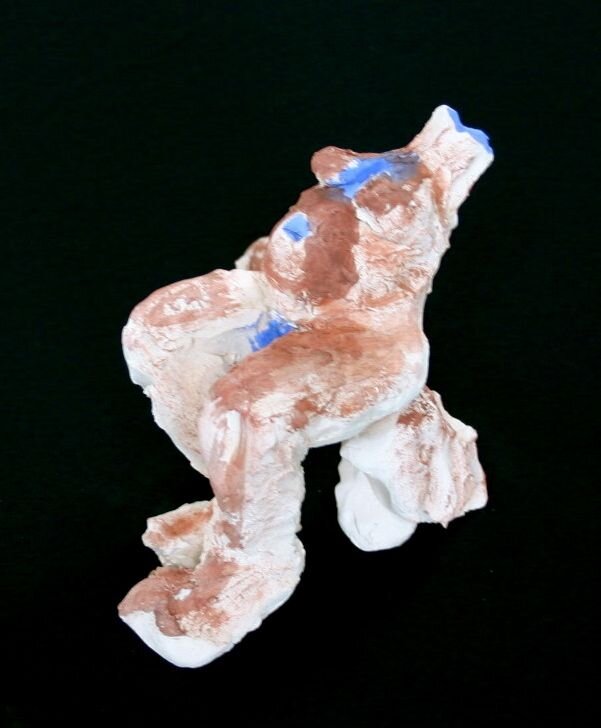
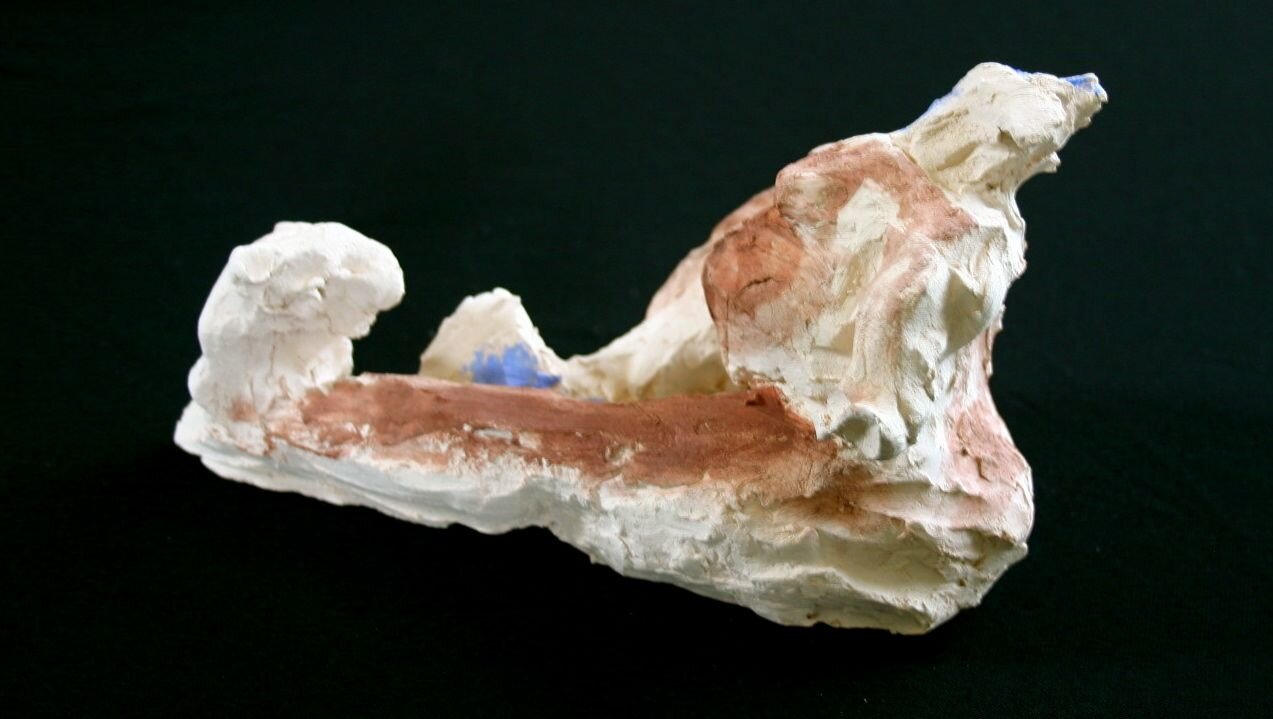
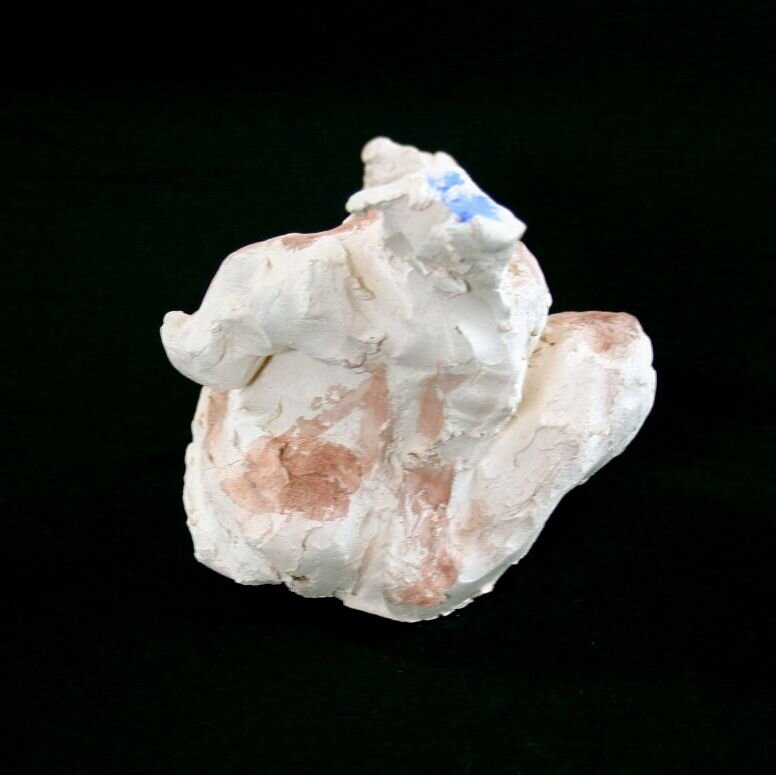
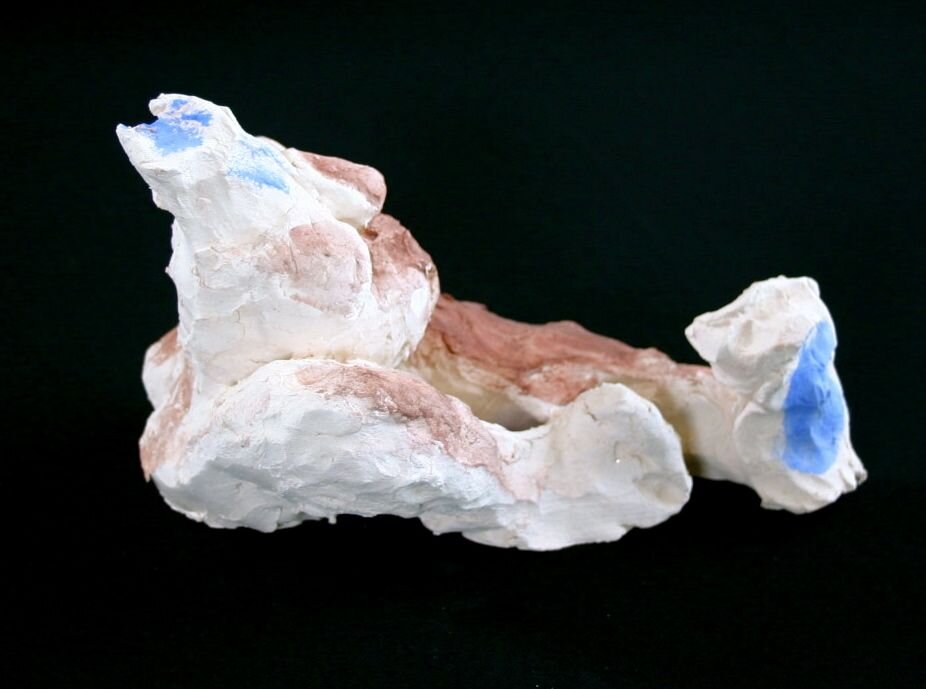
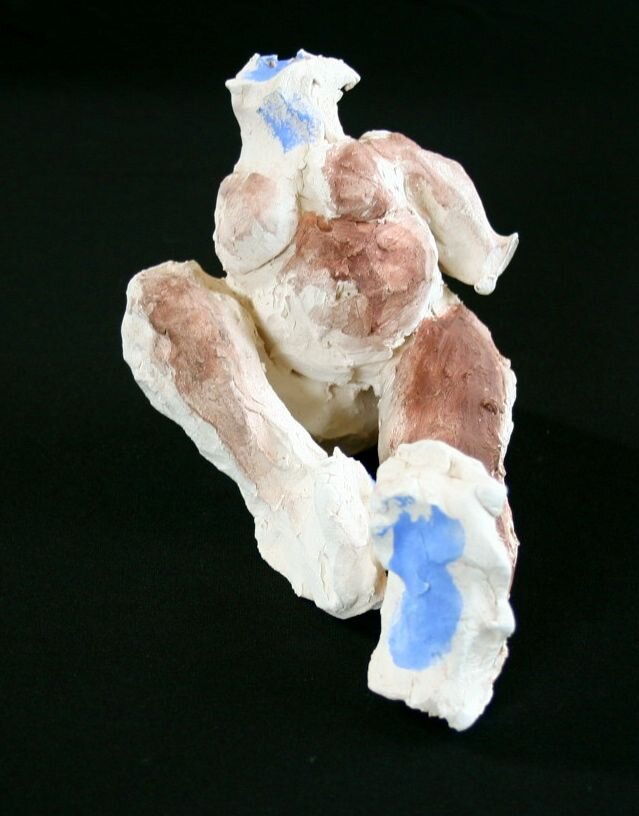
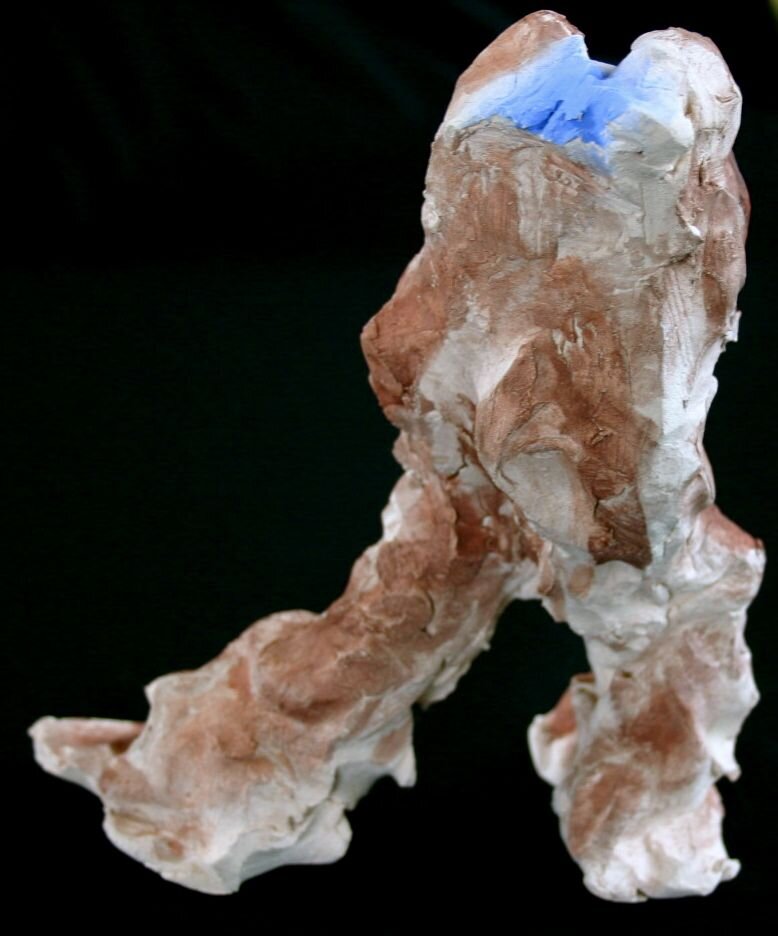
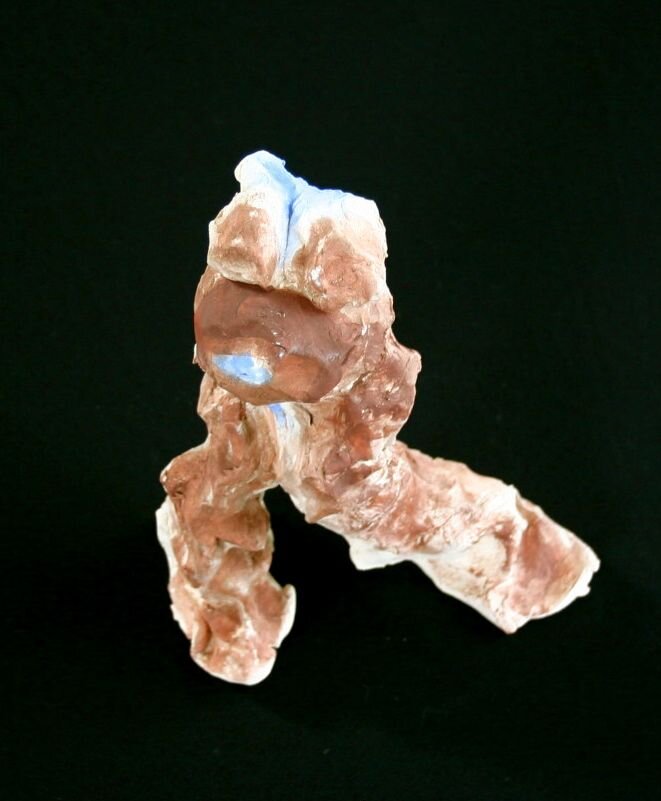
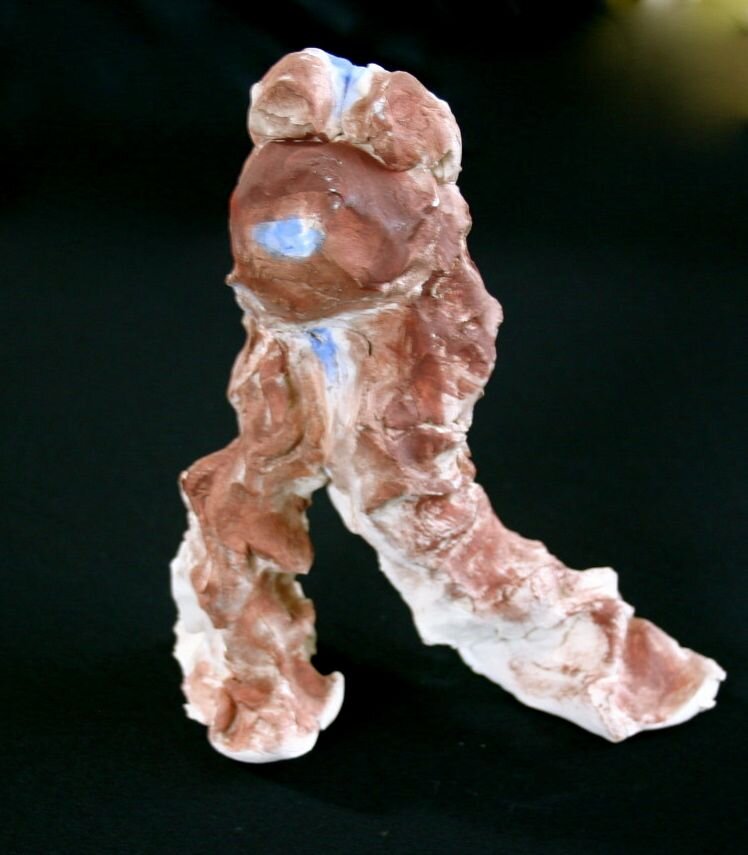
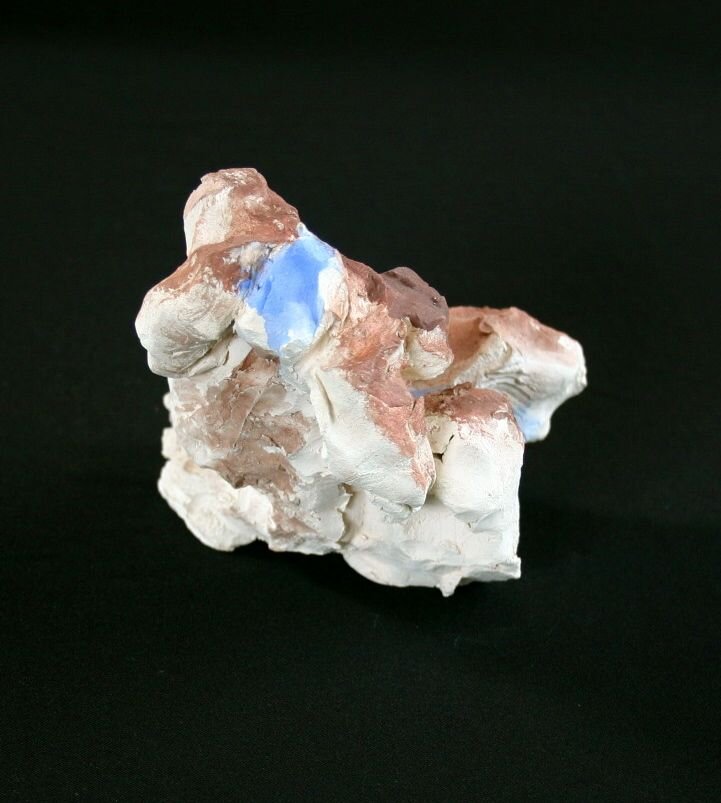
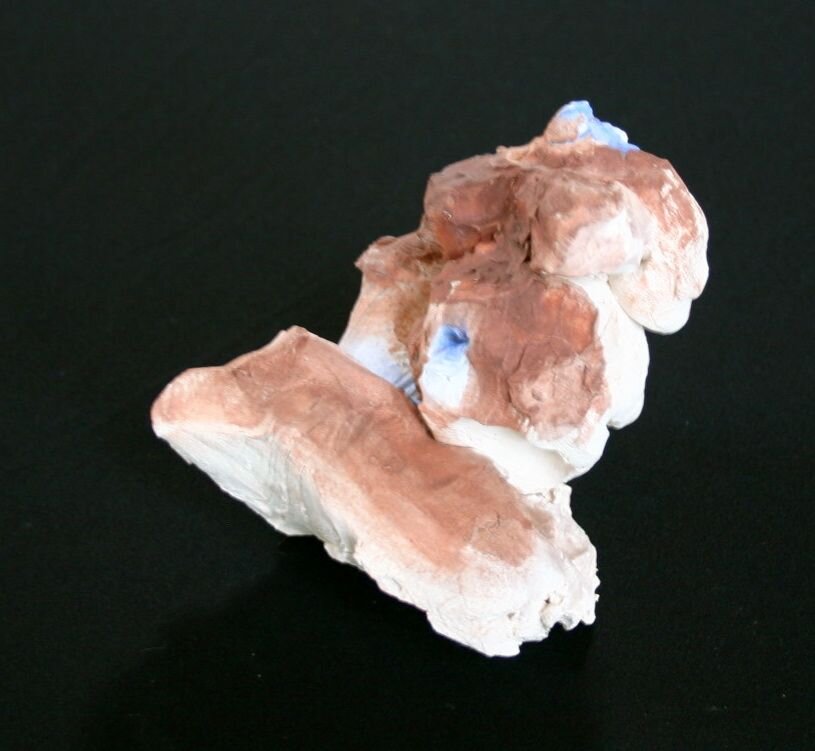
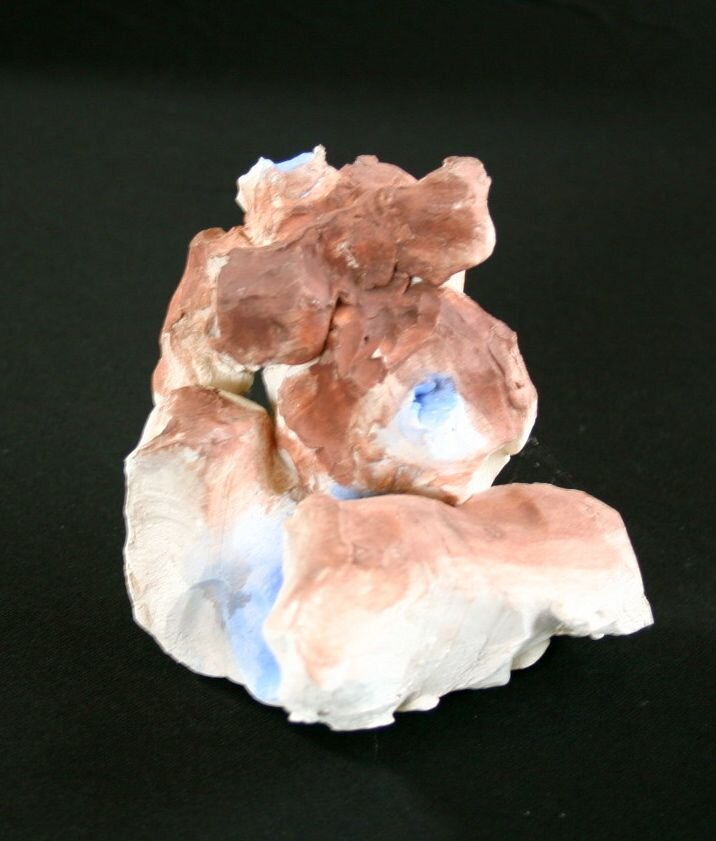
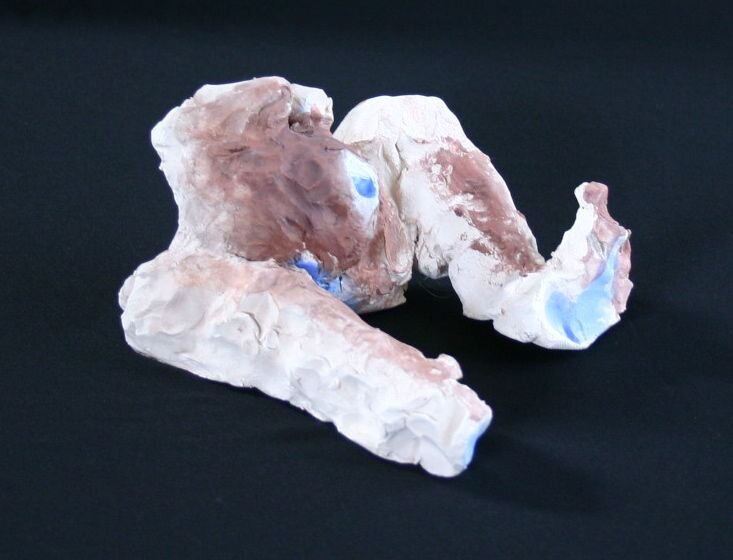
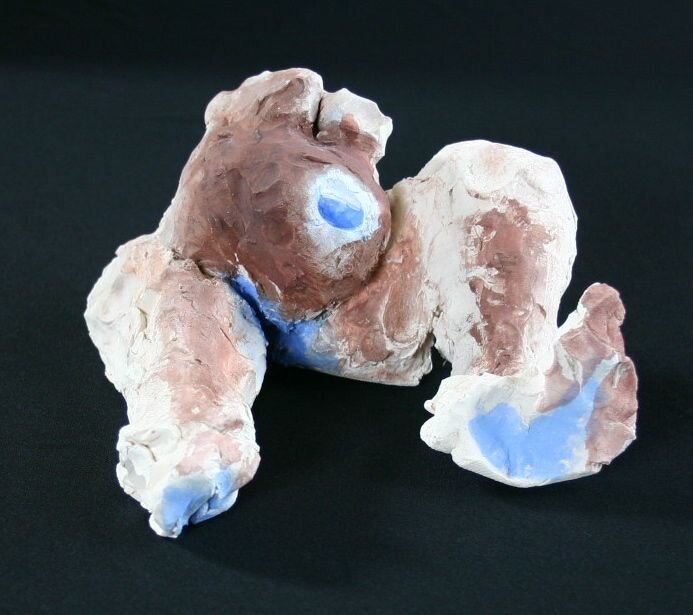
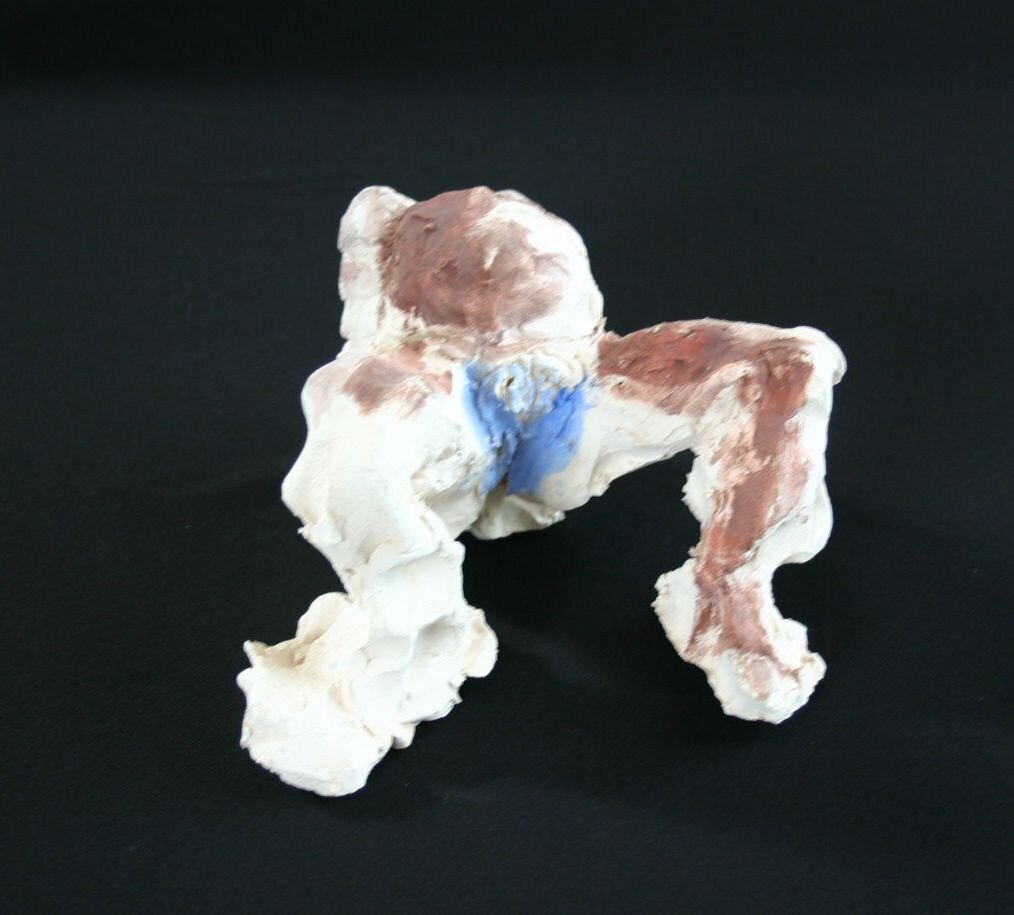
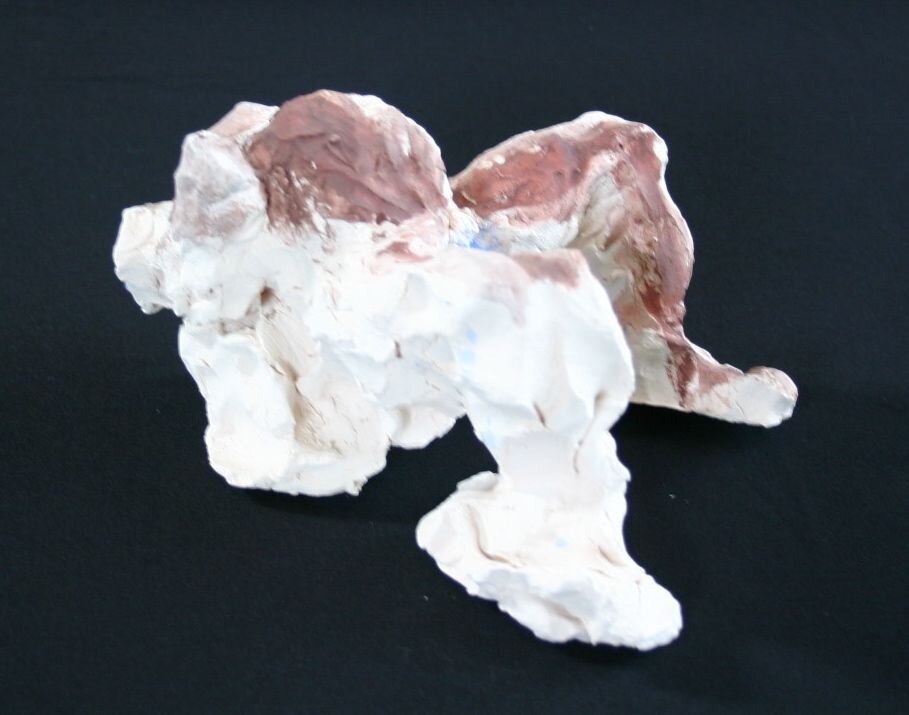
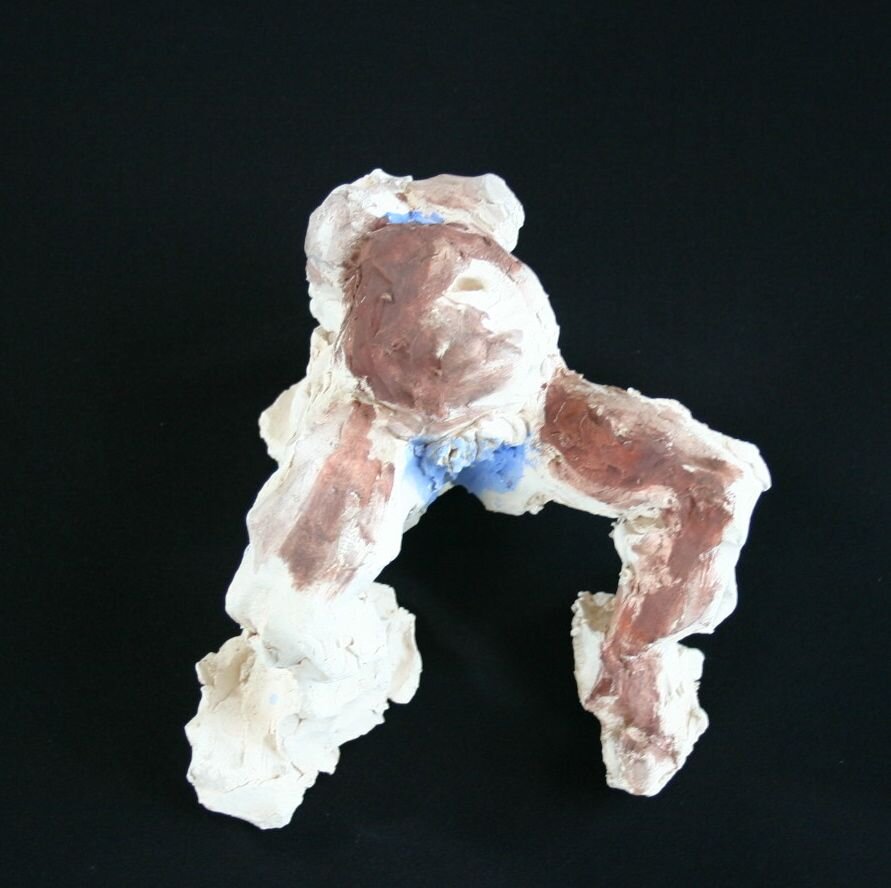
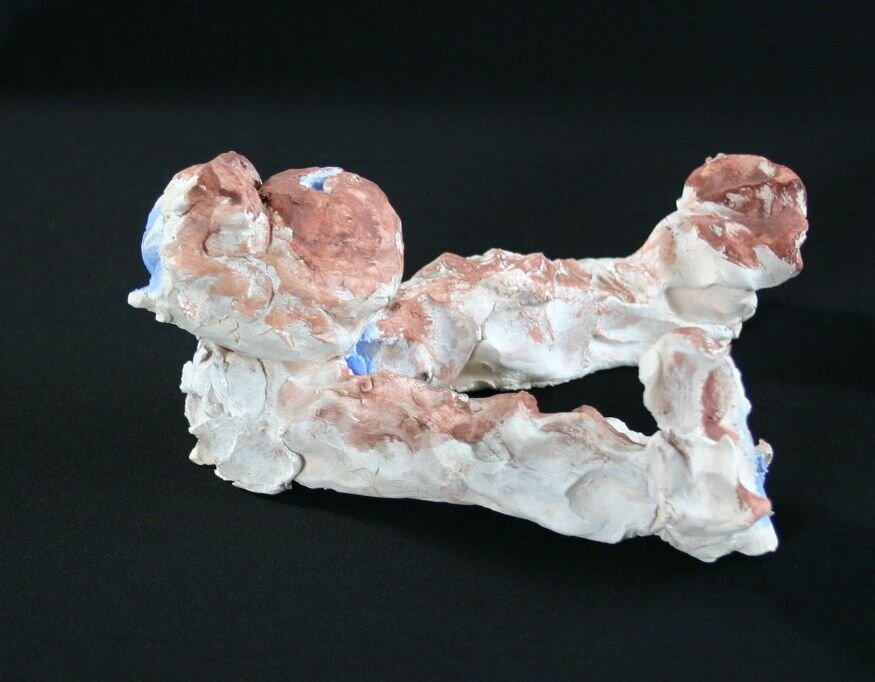
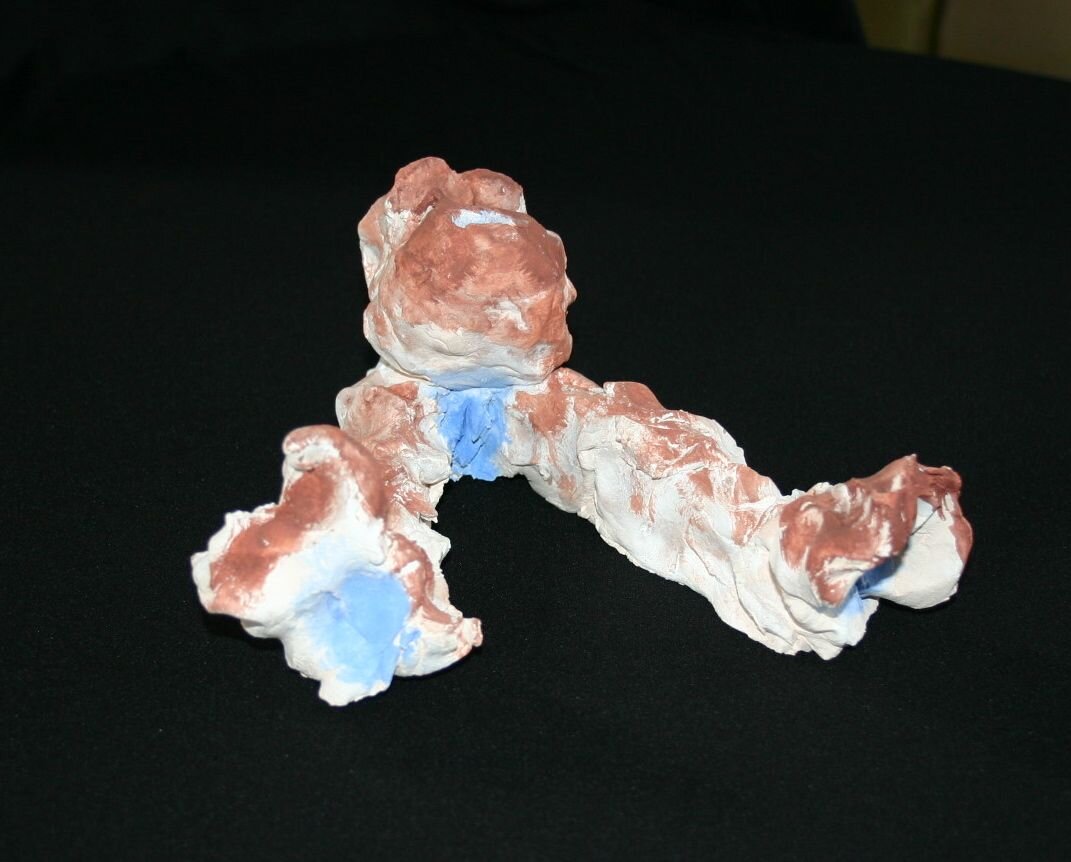
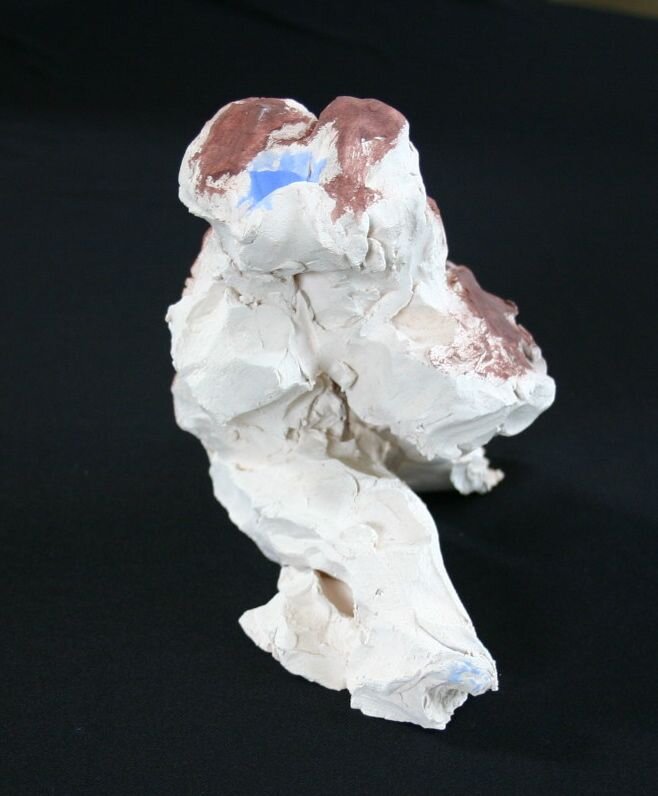
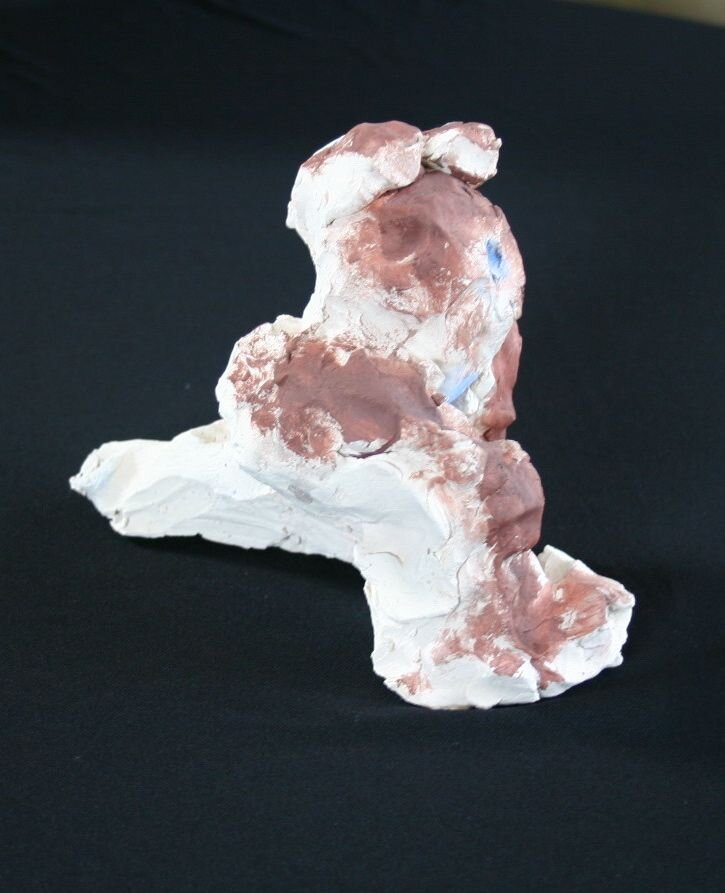
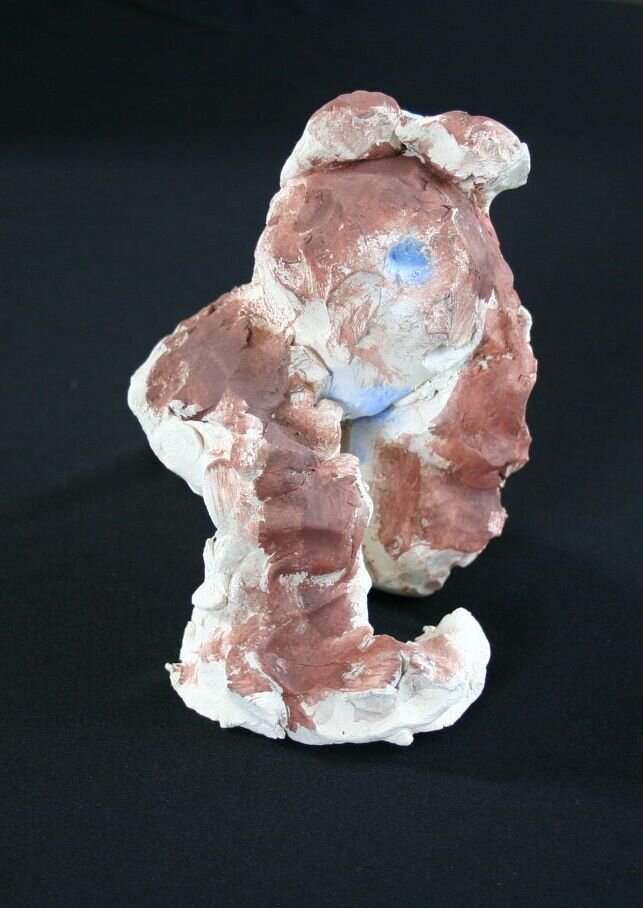
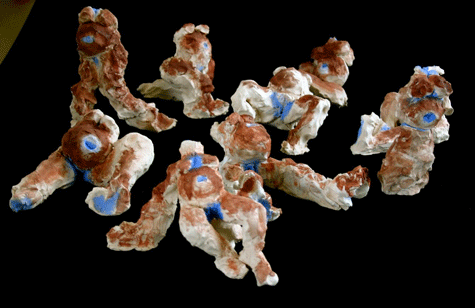
Like an egg, I was slowly cracking open- excavating a space for the Divine to enter. But as I created, I felt stuck. I didn't feel that deep freedom which connecting to the Divine creative flow brings. I was controlling the process too much.To loosen my grip, I began a series called the "The Act of Creation". These pieces are about surrendering to the moment of creation without judgment. It was important for me to create without expectation of the outcome, to surrender product for process. I entered into the Void and mingled with the Divine creative energies there. Thus I acted on this clay only by instinct and stopped in the moment I felt this internal flow of creativity recede. As a vessel, I felt the creative energies within me merge into matter and I felt it as a physical sensation deep within my body. These pieces are a captured instant of the creative process made concrete and a record of, perhaps, my most intimates moments in the arms ofTthe Artist. Here are just a few from this series to the right.
Making these pieces completely opened me up. Suddenly I had ears, finally The Artist had come and gently slipped me on like a glove. My current "Mystical Vessel" series, sculptures of mystics who profoundly influenced my spiritual development, could not have happened without this experience of letting go. The first three pieces from this series are below: The Pregnant Virgin, Hildgard of Bingen and St. Francis He is in process and needs arms....Making art in this way, deeply connected to Divine flow of creativity, is an adventure, a riotous ride into the unknown. Like a whirling dervish, I spin into hidden realms and it is sweet compensation for a body confined by illness. Which is why, despite everything I have been through, I am profoundly grateful for the infinite kindness of God.


